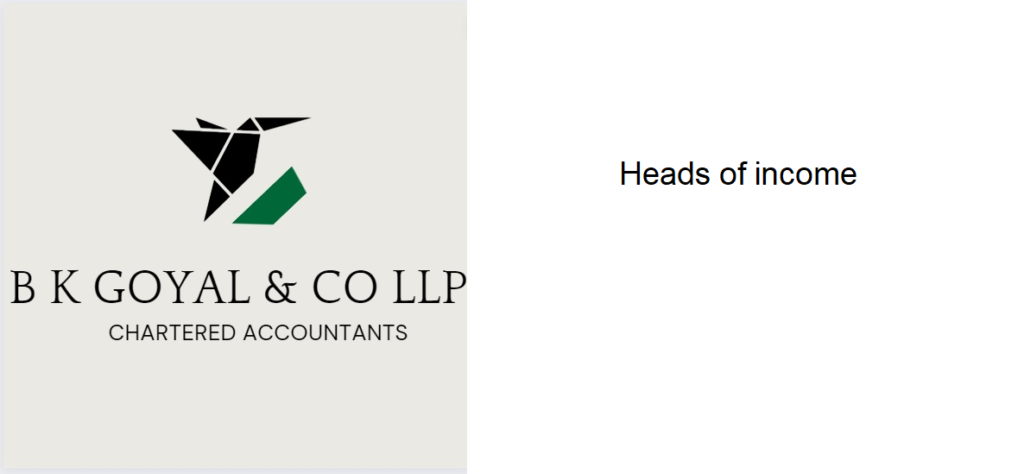The taxation system in India classifies income into five different categories, commonly referred to as “heads of income.” It is crucial to have a proper understanding of these categories for effective tax planning and filing of income tax returns. In this article, we will delve into each of these five heads of income in detail.
Income from Employment: The revenue earned from an occupation or profession is recognized as “Income from Employment.” This category encompasses basic salary, bonuses, commissions, perks, and allowances. Employers are required to deduct tax at source (TDS) on behalf of their employees, and employees can claim deductions for expenses such as conveyance, medical expenses, and house rent allowance (HRA) to reduce their taxable income.
Income from Real Estate Property: Revenue generated from a building or house is termed “Income from Real Estate Property.” This head includes rental income earned from commercial or residential property and any income generated from the sale of a property. The net annual value of the property is calculated by deducting municipal taxes and property repair expenses from the gross annual value. A standard deduction of 30% is allowed from the net annual value to determine the taxable income.
Profits and Gains from Business or Profession: This category covers the income earned from a business or profession. This includes income from trading, providing services, or manufacturing, as well as any profits or losses from such activities. Tax deductions are allowed for expenses incurred in carrying out the business or profession, such as salaries, rent, interest, and depreciation.
Income from Capital Gains: Revenue generated from the sale of a capital asset is referred to as “Income from Capital Gains.” This category encompasses revenue generated from selling a house, stocks, mutual funds, or any other asset that has appreciated in value over time. The tax is levied on the profit earned from the sale of the asset, which is the difference between the sale price and the purchase price.
Income from Miscellaneous Sources: Any income that does not fall under the other four categories is included in this head. This category includes interest earned on savings accounts, fixed deposits, and recurring deposits, as well as income from lottery winnings, gifts, and other sources. Deductions are allowed for expenses incurred in earning such income.
In conclusion, having a proper understanding of the five heads of income is crucial for effective tax planning and filing of income tax returns. It is essential to keep up with the latest tax regulations and filing procedures, and seeking professional advice is always recommended when in doubt.
section 14 of Income Tax Act, 1961
Save as otherwise provided by this Act, all income shall, for the purposes of charge of income-tax and computation of total income, be classified under the following heads of income :—
A.—Salaries.
B.—[***]
C.—Income from house property.
D.—Profits and gains of business or profession.
E.—Capital gains.
F.—Income from other sources.
Services of B K Goyal & Co LLP
Income Tax Return Filing | Income Tax Appeal | Income Tax Notice | GST Registration | GST Return Filing | FSSAI Registration | Company Registration | Company Audit | Company Annual Compliance | Income Tax Audit | Nidhi Company Registration| LLP Registration | Accounting in India | NGO Registration | NGO Audit | ESG | BRSR | Private Security Agency | Udyam Registration | Trademark Registration | Copyright Registration | Patent Registration | Import Export Code | Forensic Accounting and Fraud Detection | Section 8 Company | Foreign Company | 80G and 12A Certificate | FCRA Registration |DGGI Cases | Scrutiny Cases | Income Escapement Cases | Search & Seizure | CIT Appeal | ITAT Appeal | Auditors | Internal Audit | Financial Audit | Process Audit | IEC Code | CA Certification | Income Tax Penalty Notice u/s 271(1)(c) | Income Tax Notice u/s 142(1) | Income Tax Notice u/s 144 |Income Tax Notice u/s 148 | Income Tax Demand Notice
